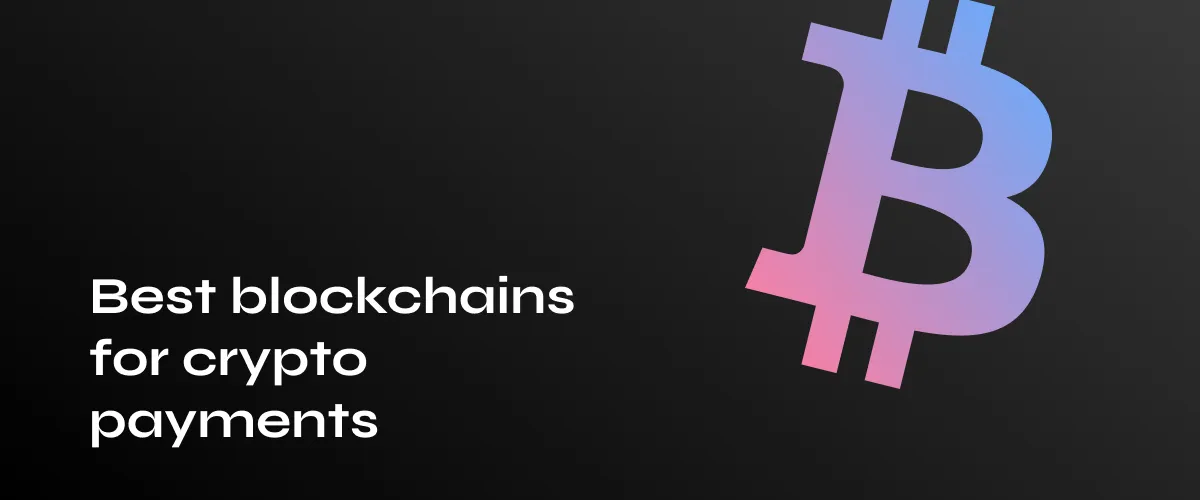The Best Blockchains for Cryptocurrency Payments: An In-Depth Guide
Cryptocurrency payments are rapidly becoming a significant aspect of modern financial transactions. As more businesses discover the benefits of accepting digital currencies, terms like “Bitcoin Is Accepted Here” are becoming commonplace. However, not all blockchains are created equal when it comes to facilitating payments. In this post, we explore the most suitable blockchains for real-time digital asset transactions and their unique advantages.
Why Blockchain Technology is Essential for Payments
- Blockchain ensures decentralization, security, and speed for transactions.
- Some blockchains are specifically designed for seamless financial transactions.
- GOPayments enables businesses to accept cryptocurrency payments efficiently.
Blockchain serves as a distributed database that maintains an unbreakable chain of records, stored across thousands of devices. Each block in the blockchain contains transaction data and details about the preceding block, creating a secure and transparent ledger. This technology makes cryptocurrency transactions tamper-proof, anonymous, transparent, and cost-effective.
Identifying the Best Blockchains for Cryptocurrency Payments
When assessing which blockchains excel in payment functionalities, it’s crucial to consider their original purpose. Bitcoin, the first cryptocurrency, was created as a peer-to-peer online currency designed for secure and fast transactions without intermediaries. However, the popularity of Bitcoin has led to network congestion and increased fees, prompting the need for alternative solutions.
Top Blockchains for Crypto Payments
Here are some of the leading blockchains well-suited for cryptocurrency payments:
- XRP:
A digital payment system aimed at providing real-time asset transfers. XRP offers a transparent and secure alternative to traditional methods like bank transfers, making it an excellent choice for merchants wishing to accept crypto payments. - Dogecoin:
Originally created as a meme cryptocurrency in 2013, Dogecoin has become a legitimate payment method for many businesses. With its fast transaction confirmations and low fees, it is perfect for micropayments. - TRON:
Known for its efficient decentralized applications, TRON allows low-cost, quick transactions with impressive scalability, making it an attractive option for businesses. - Litecoin:
Dubbed the “lite” version of Bitcoin, Litecoin offers near-instant payment processing with minimal fees, making it a preferred payment method for thousands of merchants worldwide. - Cosmos:
A decentralized platform facilitating interaction between blockchains. With rapid transaction speeds and negligible costs, Cosmos is also eco-friendly, operating on a Proof-of-Stake consensus. - Monero:
Focused on privacy and security, Monero is an excellent choice for businesses that prioritize anonymity in their transactions. - Hedera Hashgraph:
Utilizing a unique consensus mechanism, Hedera supports high transaction throughput and low fees, making it suitable for commercial applications and micropayments. - Elrond:
A secure platform for building decentralized applications, Elrond offers high scalability, with rapid transaction processing and low fees. - Dash:
Known for its rapid transaction confirmation, Dash combines security features with low fees and offers functionalities such as InstantSend and PrivateSend. - Nano:
A fee-less, high-speed blockchain that excels in providing consumers with free transactions while adhering to ISO requirements.
In conclusion, choosing the right blockchain for payment processing is critical for businesses looking to adopt cryptocurrency transactions efficiently. Each blockchain has its advantages, catering to different transactional needs—whether it’s speed, cost-effectiveness, or security. By opting for GOPayments, businesses can capitalize on the growing field of cryptocurrency payments and provide customers with an array of digital asset options.
